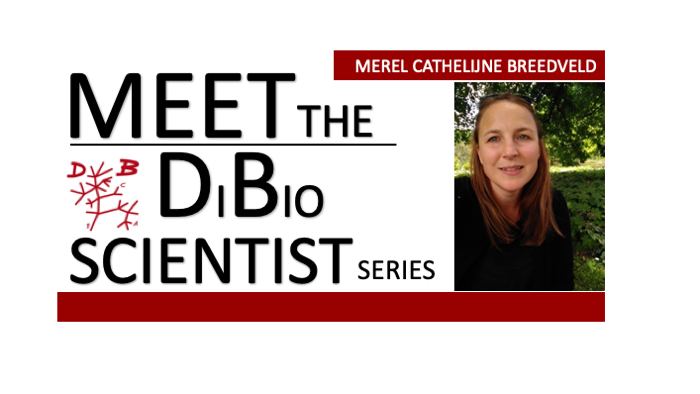
MEET THE DIBIO SCIENTIST SERIES : MEREL CATHELIJNE BREEDVELD
Pubblicato il: 17.09.2021 13:00
Merel is a Marie Curie fellow at the laboratory of Clelia Gasparini
Can you summarize in few words your research?
I am broadly interested in reproduction and sexual selection. I try to find out whether animals adjust reproductive strategies with respect to changing external conditions, to ultimately understand the consequences of environmental change on reproductive success and animal populations. At DiBio I am investigating the effects of heatwaves on fertility, sexual selection, and transgenerational fitness using the guppy (Poecilia reticulata) as a model system.
What is the most rewarding and the most challenging part of your work?
The most rewarding things are finding nice results after working hard to obtain data and discussing/comparing interests and findings with colleagues. The most challenging is keeping up to date with everything as a scientist: new literature, upcoming conferences, experiments, data analyses, publishing, etc. There is just a lot going on and too little time. Also, as a postdoc, not knowing what the future brings in terms of work can be challenging.
Tell us your story: what brings you to DiBio?
After finishing my MSc in Animal Biology in the Netherlands, I moved to Spain to study reproductive strategies and sexual selection in lizards. I then went to Germany for my first postdoc, where I investigated in voles how mothers respond to infanticide risk. Wanting to learn more about sperm quality and post-copulatory sexual selection, I got into touch with Clelia Gasparini, with whom I was lucky enough to win a fellowship.
What would you tell your younger self?
Don’t feel insecure about not knowing something. One cannot know everything. Plus, there are plenty of sources to ask or look things up, and one can continue to learn throughout their live.
What’s your favourite “toy” for research – and what can it do?
Though lately I enjoy using tools to track and analyse sperm swimming performance, the most essential “toy” is probably the internet. Even though we take it for granted, the internet makes our life as scientist easier than ever. It gives us access to literature, networking, conferences, products, etc. from all over the world while not moving an inch from our desks and provides access to unlimited sources of information. The internet allowed science to continue during lockdowns and makes it easier to keep in touch with family and friends back home, while moving between countries as a scientist.
What are your interests outside science?
I love painting and making music, taking long walks in nature, taking photos (even though I’m useless at the technical aspect), and cooking. But again, as time is limited, nowadays I enjoy most of my free time with my two lovely and curious daughters.





